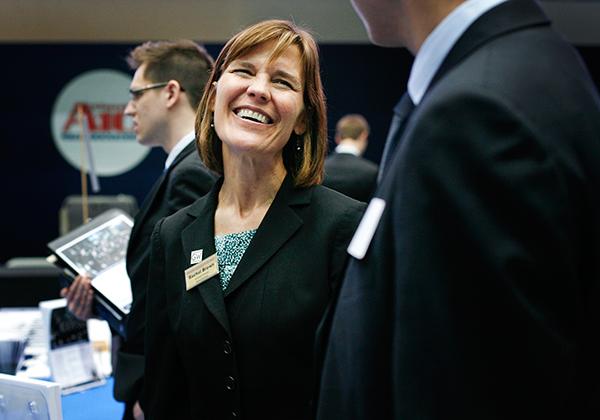Responses to GW’s survey of recent alumni’s post-graduation plans roughly doubled this year with 85 percent of the Class of 2014 responding to the annual questionnaire.
The Center for Career Services reached out to members of last year’s graduating class three times last year, rather than sending out just one survey — which Provost Steven Lerman pointed to last week as the main factor behind yielding better data for the University.
Every year since at least 2005, less than half of the graduating class responded to the survey. Lerman said this year’s increase confirms a response bias in the survey, which means students may have been less likely to respond if they were only asked once and didn’t want to share that they didn’t yet have a job.
The number of students reporting that they were actively seeking employment six months after graduation jumped from 8 percent among 2013 graduates, who were given the survey once, to 14 percent of 2014 graduates.
“It confirms the response bias that with the old survey methodology, those who were actively working had the propensity to answer more than those who were still seeking employment,” Lerman said.
The percentage of 2014 graduates that reported being employed full-time or part-time also decreased to 55 percent this year, down 10 percentage points from the previous three years.
Lerman said the changes reflected GW receiving better data, not a significantly different job market for 2014 graduates.
“If I am right, if we do this in future years, my sense is that this number will move a little,” he said. “We are going to use this methodology going forward, so we’ll see what happens.”
Twenty percent of the Class of 2014 reported that they were enrolled in some sort of continuing education program, while 11 percent reported they were involved in another type of activity, such as a family obligation, travel or volunteering.
More college graduates are finding themselves taking jobs for which they are overqualified or accepting additional internships after they’ve graduated, as the economy improves and the job market becomes more competitive.
Rachel Brown, the assistant provost for University career services, said GW reached out to graduating seniors in the three months leading up to Commencement, over the summer and again six months after they graduated to ask about their post-graduation plans.
The National Association of Colleges and Employers changed its standards for collecting information about recent graduates’ plans, she said, which allows GW to better compare its graduates’ success to peer schools.
“Knowing first-destination outcomes of our graduates is important information for current students, as well as prospective students and their families, so that they are aware of the variety of employers, options and paths for our new graduates,” Brown said in an email.







